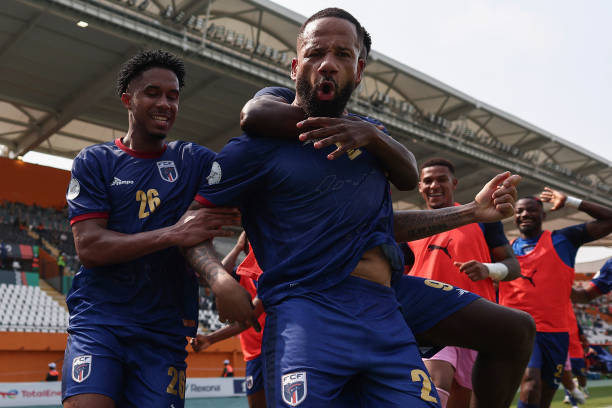AFCON: Cape Verde’s meteoric rise in African Football

Football history, just like other sporting histories is littered with unprecedented upsets and fairytale victories, which more often than not are isolated cases while others mark the beginning of a transition from minnows to mid-level or top-tier teams. A vivid example is the fairytale rise of Cape Verde in African Football.
The most optimistic Cape Verdean would not have predicted the Blue Sharks would qualify for the knockout stages in a group that has four-time champions, Ghana and seven-time champions, Egypt; yet after two matches, Cape Verde has emerged group winners following wins over Ghana and Mozambique to seal qualification into the knockout stages.
While a title charge is unlikely, the likes of the nation’s captain and all-time leading goalscorer, Ryan Mendes, Bebe, and Kevin Pina are leading the charge for a best-placed semifinal finish for this well-drilled Cape Verdean team.
It is imperative to note that the Blue Sharks made their first appearance at the Africa Cup of Nations in 2013 and have made three more appearances at the tourney with a best-placed finish of the quarterfinals coming in their debut appearance.
The former Portuguese colony’s rise in football, especially African football is simply stunning by any standard. About two decades ago, Cape Verde was ranked 182nd by FIFA and is now ranked the 73rd best footballing nation in the world and 14th in Africa. Perhaps more astonishing is the island’s 31st ranking in world football on March 3, 2016, by FIFA, making them the continent’s top-ranked team at the time.
The strategic recruitment of players by the island nation has been well documented in the past, just as much as the agony of coming so close to FIFA World Cup qualification in 2014 before being stymied by a sanction for fielding an ineligible player. The great work carried out by former national team coach, Alexandre Alhinho in recruiting players of Cape Verdean origin from around the world laid the structural framework that has enabled the Blue Sharks a certain degree of success today. While quality players are needed in the team, investment in football infrastructure around the nation will spur an increase in the interest and growth of the sport in Cape Verde.
As the Blue Sharks look ahead to the knockout stages, they have certainly left their mark on the competition and one can only wonder how far this composed and skilled Cape Verdean team can go. A more daunting task for Cape Verde who joined FIFA in 1986 but did not compete in World Cup qualifiers until 2000, will be the quest for FIFA World Cup football, which may be on the horizon if their meteoric rise continues.







